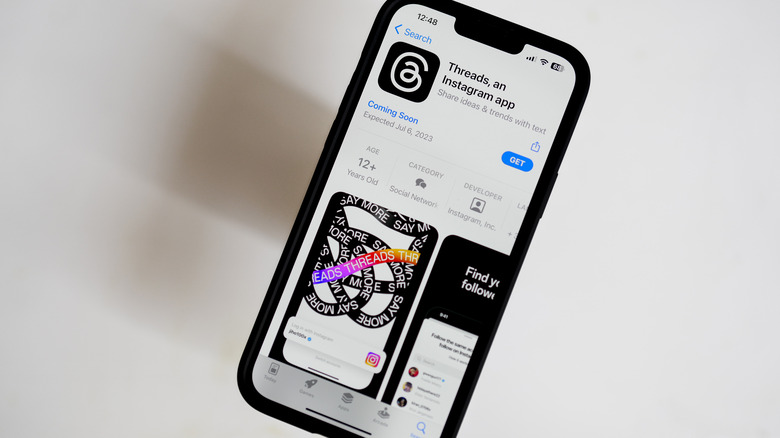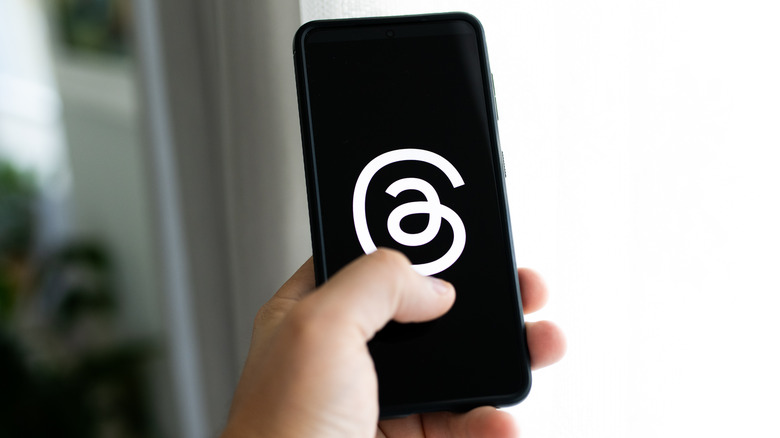Meta Says Threads Will Be Part Of The Fediverse: Here's What That Means
Meta has received quite some enthusiastic response to the launch of Threads, a Twitter rival built atop the foundation of Instagram. It's clear Meta harbors far more ambitious plans, and actually wants Threads to communicate with other social platforms as well. That vision will come to life with the "Fediverse."
Meta defines fediverse as "a social network of different servers operated by third parties that are connected and can communicate with each other." In order to understand the concept of a fediverse, we must first assess how current-generation social media platforms work.
Take, for example, Twitter: It's a centralized platform, which means all user data passes through one central brain. All the interactions — be it tweets, likes, or reposts — remain exclusive to Twitter. A person needs to open the Twitter app or visit its desktop client in order to interact with tweets.
An entirely different approach is a decentralized platform, otherwise known as a fediverse. Mastodon is just one pocket of the fediverse, the fundamental difference here is that Twitter is a platform. A fediverse, on the other hand, is a bunch of social media ecosystems that talk with each other.
To put it in more relatable terms, it's an interconnected web of social media sites. In this case, one of those sites will be Threads. If Meta's plan goes as intended, Threads users will be able to communicate with users on a different social media ecosystem within the fediverse, even if they haven't specifically signed up for Threads.
No single master or boundaries
At the fediverse's heart are protocols. Meta says Threads supports the "ActivityPub" protocol so that it can assimilate within the fediverse. ActivityPub was developed by the World Wide Web Consortium (W3C), and it allows the creation of a federal system that essentially serves the same formula as social networking platforms, but with a lot more freedom and no centralization limits.
Systems built upon the foundations of ActivityPub collectively form the fediverse. Right now, Threads exists as a social media platform like Instagram or Facebook. But in the fediverse, it would exist like a server, among hundreds of other servers.
Despite these servers having their own unique set of rules and policies, each would be able to communicate with each other — no walled garden. You can have an account on Threads, but still be able to post and interact with content on another server like Mastodon. Essentially, you can envision the fediverse as an interconnected web of online social corners.
The closest example of such an ecosystem would be email. It doesn't matter if you have a Gmail account, or whether you are using Outlook, you can still send and receive messages from a Yahoo account. It all happens with interoperable protocols, just like ActivityPub, which connects fediverse servers. Right now, Threads is not a part of the fediverse, but it will be soon. When it happens, Threads and Mastodon will technically become interoperable.
You are free to choose your online social corner
While interoperability remains the biggest perk of the fediverse, it also offers a host of other benefits. Unlike a centralized platform, where a single entity decides all the rules and controls your data, the fediverse does away with that concept. Once the walled garden problem is solved, you can get a taste of other social products as well — without fully committing an account or separate user login to it.
For example, if you don't like the tight rules on Threads, or its bland UI, you can engage with members on Mastodon, where instances are more liberal and you get more control over posting multimedia content. Or, you can simply join a friend's own Mastodon server with their own rules for that community.
"Each compatible app can set its own community standards and content moderation policies, meaning people have the freedom to choose spaces that align with their values," Meta explains. The best part is that, as a Threads user, you won't necessarily have to install the Mastodon app to communicate with users in one of its social instances.
The fediverse takes users away from the confines of a platform. It's an open world governed by a protocol. How an app leverages the protocol, and what social sites a developer creates, is entirely up to them. But as a fediverse citizen, you will be able to interact with all of them, without having to individually sign up for each one.


